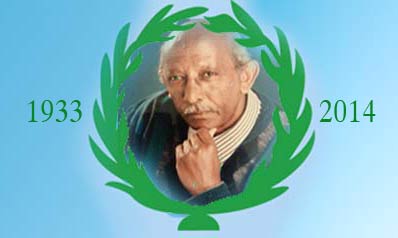Critical Discourse Analysis

“I do not know what I may appear to the world, but to myself I seem to have been only like a boy playing on the seashore and diverting myself in now and then finding a smoother pebble or a prettier shell than ordinary, whilst the great ocean of truth lay all undiscovered before me.” (Newton)
Setting the Scene in the Use of Critical Discourse Analysis (CDA)
Optics in their various forms to their viewers; audio files in their narrations to their listeners; and text documents in their variant forms to their readers; all provide their audience plenty to digest, internalize, and appropriate depending on the capacity of the receiver’s criticality. Dr. Chefena Hailemariam’s recent talk in Snitna on 6 May 2023, titled “Discourse for Building Common Understanding” seems to be cognizant and anticipates the caption above “of smoother pebble or a prettier shell than ordinary, whilst the great ocean of truth lay all undiscovered before” us all. Such seems to be the case for this writer so much so that there will be three installments: indeed, plenty of pebbles at the shores of my mind’s eye. Before reaching the shore however there will be plenty of clashes. Imagine numerous thunderstorms clashing each carrying its own power of lightning, thunder, hail, and all to eventually settling down as though there was no riotous moments just minutes before. The internal Eritrean opposition groups are like the multiple thunderous clashes, which will eventually settle into one calmer nation, a nation that will begin to thrive; a nation that will have plenty of space for all its inhabitants to live side by side in harmony. Consider this article and at least two more that will follow as those thunderous clash points before we all begin to settle toward the common understanding the subject in question is titled after.
Dr. Chefena’s speech is merely a point of departure, a sincere attempt at telling a more coherent narrative related to our region. In this installment, two conceptions of Critical Discourse Analysis (CDA) as a theoretical background will be shared as that will be the tool by which I will appraise and assess Dr. Chefena’s (The Speaker’s) speech. The rest of the piece will consider (I) the setting of the speech. (II) The lack of sincerity The Speaker sees in the discourse between and among Eritrean opposition groups. (III) The labeling of Eritreans as keda’At (treasonous) who stood with the Tigray Defense Force (TDF) in the war that Eritrea was involved in.
Critical Discourse Analysis
To truly understand the dynamism of dialogue, invoking Bakhtin’s (1981) Dialogic Theory (Bourdieu’s social theory will follow a little later) is a compulsory endeavor. Essentially, what the theory purports is that language cannot exist outside its sociopolitical and cultural contexts if its communicative intent is to be comprehended properly. When any group of people are gathered in any setting their language will have an innate dialogic veneer to the group’s sociopolitical and sociocultural background and that discourses emanate from such a dialogue. The talk that Dr. Chefena gave provides an opportunity to hear what was said on the surface and what was implied beneath the surface that may offer enriching moments of gleaning lessons in the art of politics.
I The Setting, the Venue and the empirical and the anecdotal in the Speech
The setting was done via video conferencing platform. One may not know all the individual participants in the audience, but it is a safe bet to presume they were, at best, enthusiastic about the speech as it became apparent from the Q&A session that followed in part two. Therefore, when one presents in front of such a crowd, his choice of words, ideas, and concepts he propounds will conform to such an audience, more likely making it, consciously or not, subjective. This political text-document (in this case the speech presented) through the choice of tailor-made language served its purpose effectively. Thus, as a political speech, the talk invariably will also have intertextual social and political dynamics embedded in it that tend to pander and acquiesce to the whims of the like-minded audiences, in this case, who were his direct listeners.
These unspoken ways of empowering the friendly audience requires sophistication in the art of producing texts and speeches. Bourdieu’s (2000) social theory of “symbolic violence” can help explain how the speaker was able to empower those who felt disempowered in the defeat of TPLF while not explicitly divulging the demise of TPLF. Akin to the Marxist’s notion of “false consciousness”, symbolic violence asserts that long held oppressions of people binds them to kowtow and internalize the dominant bloc’s discourses so much so that they see no harm in parroting such notions as something “acceptable and even natural” (Bourdieu, 2000). The implicit message, nevertheless, is made abundantly clear where the political power lay: In this case, with the governing body in Eritrea, for unequivocally, the speaker’s wrath was directed at PFDJ as though there was no warring party with which the latter was waging; the last blow during the third phase of TPLF’s attempt at waging a war that ended up sending it straight to Pretoria, South Africa; all, of course, at the behest of the U.S. and its allies for TPLF to negotiate peace with the Abiy Ahmed government of Ethiopia. This is never spelled out in the speech. Why? There will be detailed treatments of the subject of TPLF and EPLF in subsequent articles. Let’s proceed to number II at once.
II Lack of Sincerity in our Discourses
What was fascinating to observe in the speech is this: The social scientist (empirically leaning) and the political activist (anecdotally leaning) in the same man appeared to be at loggerheads. The former invokes methodologies, empirical data, framing, logical fallacies to attack the latter yet most of the examples The Speaker gives are anecdotal ones. For example, Dr. Chefena draws a comparison between the discourse of the 1940s in Eritrea and in Diaspora today to illustrate his point of contention that the former by far outweighed the latter in the sincerity meter. No data needed; it is the anecdotal man speaking. Perhaps citing Venosa, J. (2011) dissertation: “Paths toward the Nation: Islamic Identity, the Eritrean Muslim League and Nationalist Mobilization, 1941-61” would have made his generalized observation from anecdotal to empirical.
To strengthen the counter argument even further, let’s cite a nameless Tigrayan. The Speaker references in his speech whose logic was based on some presumptuous assumption the narration goes, and based on those fallacious assumptions the person arrives at, obviously, erroneous conclusions. Incidentally, that was the only anecdotal example The Speaker cites that touched on the nemesis of Eritrea and its people, perhaps deliberately to sound objective. Oh, there was another one mentioned in passing to illustrate a point in how some Eritreans go up in arms about one song in which the Tigrayan singer says Tigrayans won’t stop until they reach Asmara. Never mind the endless empty bravado from the Tigrayan elites, military brass what have you who were making noises about how they won’t stop until they exacted the needed blow at Higdef. Better yet, how about the recent book authored by none other than the one of TPLF founders Gebru Asrat, the title of the book says it all: “Red Sea Is Ethiopia’s Natural Frontier”. Would that give The Speaker a pause to reconsider the continuous dismissal of such claims by Tigrayan elites since Dr. Chefena does mention the elites of any society are the ones who shape the path of any nation. So, was Dr. Chefena speaking on behalf of the elites when he repeatedly used the personal pronoun “we?”
The use of the pronoun “we”, which wasn’t clear whether it emanated from a habit some people use the royal we, if you will; whether The Speaker was speaking on behalf of his audience, whether The Speaker was speaking on behalf of Eritrean opposition groups. This is just to note the conscious and the unconscious and the empirical and the anecdotal appearing and reappearing and emerging and re-emerging in The Speaker. What this did was, at least, in The Speaker’s mind that such uses were acceptable for him to do but not when some individuals decried the Tigray Tigrinya (Abay Tigray) advocacy that saturated the social media. This is questioned by The Speaker but not those that he selectively attempted to use illustrated above. Let me end this installment with the following quote for a fundamental change to take hold what must happen is this: “‘The only way to bring about organizational change that does not entail merely replacing one modality of domination with another is to address specifically and to undo the mechanisms of de-historicization and universalization – “always and everywhere has it been this way” – whereby arbitrary workings of power are enabled to continue.’ (Emirbayer and Johnson, pp. 1-44)
In the next two installments, a retrospective analysis will be provided about the thunderous clash of the two revolutionary organizations, Eritrean People’s Liberation Front (EPLF) and Tigrayan People’s Liberation Front (TPLF) turned governing bodies of their respective countries. The latter for 27 years and the former for thirty-two years as the elaborate celebrations going on the world over now are reminding us of all that the regime’s grip-hold of Eritrea is stronger than ever. Reflecting on these two organizations perhaps is a subdued way of “celebrating” Eritrea’s independence. The external thunderous clash appears to have settled down now. The internal one within Eritrea is the next milestone that Eritreans need to figure out a way of resolving and reconciling their differences without much of a clash that would leave destruction in its wake.



Awate Forum